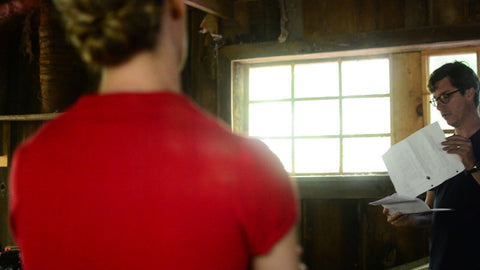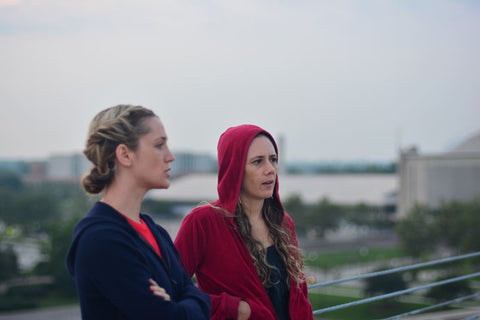"The Removals comes from a long line of intentionally ambiguous, paranoid thrillers."

Over the past two days, Nicholas Rombes has appeared in conversations at Vol. 1 Brooklyn and 3:AM Magazine with Mark de Silva, author of Square Wave, where he's discussed everything from dubbing over old VHS tapes scored from UHaul outlets, Mussolini's Blackshirts, revolution, and "art as a weapon."
In the introduction to the piece at Vol. 1 Brooklyn, Tobias Carroll comments that "[The Removals] simultaneously occupies a number of bold artistic territories. It’s a speculative work about an underground organization revisiting and re-enacting moments from history to change society to their own end; it’s a paranoid thriller about members of that organization growing disenchanted with it; and it’s about the troubles can come when you attempt to revisit the past. (In this film there are echoes of everything from Charlie Kaufman’s film Synecdoche, New York to Tom McCarthy’s novel Remainder.)"
They talk about the various Two Dollar Radio authors that appear in the movie, the influence of voiceover in Malick's Badlands, and the transition from critic to director:
"I think I’d only sensed abstractly how collaborative the process of making a feature film is. The film is shaped so powerfully by the spontaneous problem-solving that happens day to day on the set and during post-production editing. What impresses me now, when I watch a film, is the level of faith and trust that the people making it must have, because there’s really no way to know for sure how it’s going to turn out. So much of the mood and atmospherics comes in post-production, with the addition of music and the pacing of editing. At some point, the film becomes its own, living, organic thing: it tells you what it wants to be, and your job is simply to help it become that."

At 3:AM Magazine, de Silva and Rombes discuss the political nature of both their work, and its ability to impact, with de Silva commenting:
"I believe Square Wave has wounded at least some readers, and this pleases me, since what fails to wound us tends not to really reach us at all."

The conversation is boundlessly intelligent, digressive, and worthy of your time, with Rombes stating in closing:
"I think talking and trading ideas is a form of creation, and it can even yield creative inspiration. In the face of the torrent of hateful, mean-spirited discourse that the Internet promotes, talking about movies and books and philosophy makes my blood flow in a happier way. So yes, we’re as hopeless as Laing, which is a good thing, because there’s an immeasurable pleasure to be had in being hopeless, in acknowledging that our memories not just of important people in our lives, but of films, movies, art, can give us just enough pleasure, just enough happiness, to make it through another day."


Comments